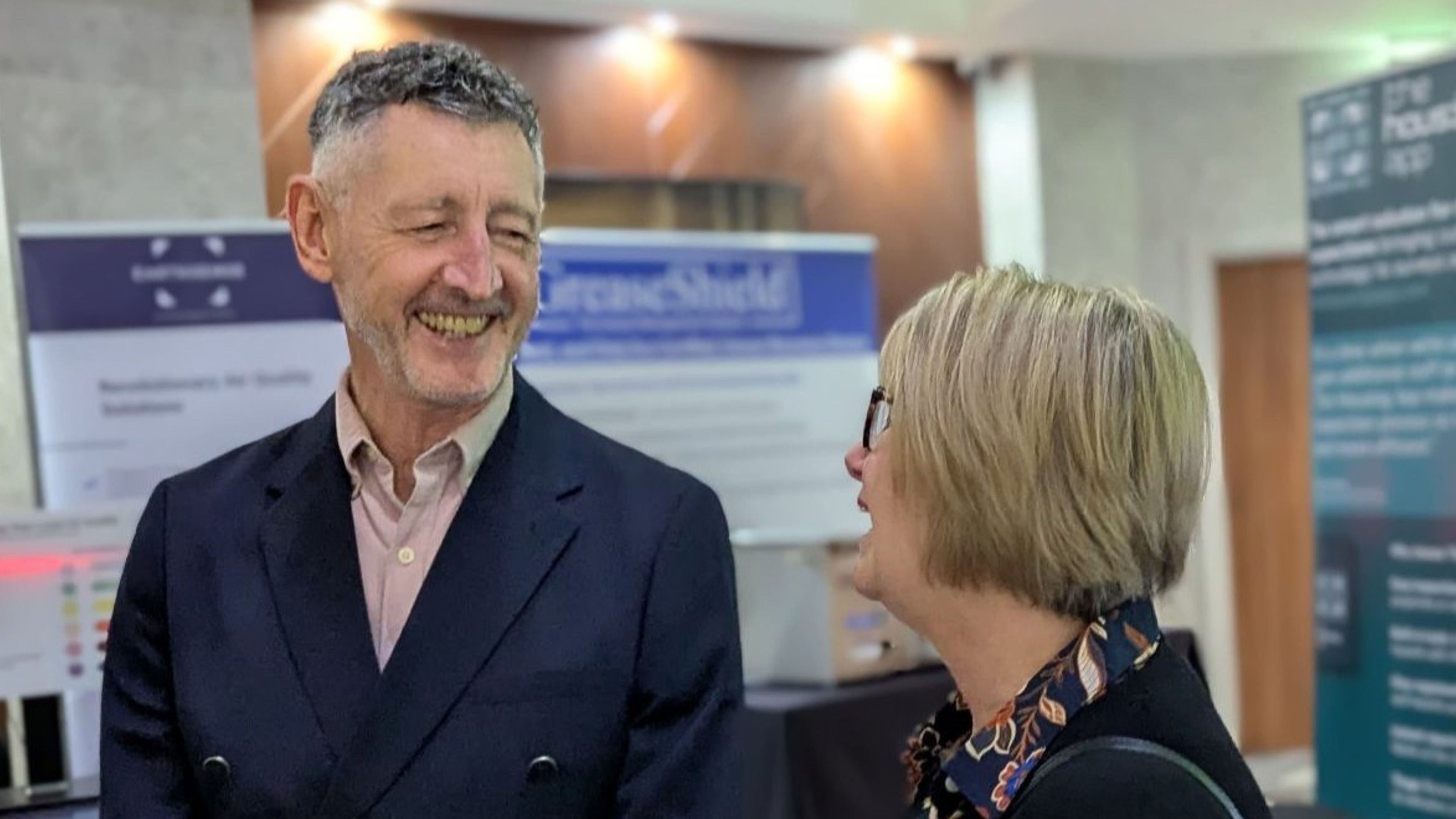Looking for a new role in environmental health?
Whether you're just starting out or ready for your next step, EHN Jobs connects you with the latest opportunities in environmental health across the UK.
Wednesday, 29 October 2025, CIEH President, Mark Elliott

It's been very pleasing to hear such positive feedback from a very well-attended event. If you weren’t able to join us, here’s an extract from my speech which reflects on one of the defining challenges of modern environmental health – health misinformation.
Change is rapid. Change is complex and dynamic. And change brings both opportunities and threats.
As CIEH President, I've become increasingly concerned by a new raging epidemic: misinformation and disinformation being spread by disseminators and influencers.
The internet has revolutionised communication. At first, this was hailed as freedom. Yet with the filters gone, so too went truth and trust – leaving us to face the consequences today. Once, truth was imperfectly certified by institutions – journals, courts, universities, and the media. Now, it’s measured in likes and shares. Tech platforms built for profit reward outrage and sensationalism, pushing content no editor would once have printed. And with a single click, an influencer can now reach hundreds of millions – something a newspaper could only dream of.
Promotion of misinformation and disinformation through mistrust in governments is uncontrolled. Emotional narratives outpace facts, "miracle cures", "hidden dangers" or “natural remedies” spread quickly, because they feel simple, even when they are wrong. Recent research published in Frontiers in Communication shows how false and misleading content spreads faster than facts, amplified by social media, echo chambers, and fear. This is becoming a major challenge for environmental public health and for the NHS itself.
In our profession, we rely on science, evidence, and integrity to be authentic – yet these are too often drowned out by louder, less accountable voices online. The consequences are serious: public trust erodes, policy becomes distorted, and misinformation can quite literally cost lives.
It’s not just words or pictures anymore. With new AI tools like Sora, the creation of lifelike synthetic video means that truth and fiction could soon be indistinguishable.
Researchers warn that such technology could be used for fraud, intimidation, and the spread of false public health messaging.
There are lots of benefits and opportunities for AI. But caution is required. Not all AI results are factual. AI, used wisely, can be a powerful ally for environmental and public health. It helps us detect pollution before it harms, predicts disease outbreaks, and manages energy and waste more efficiently. It can free professionals from routine tasks so we can focus on what really matters – human judgement, compassion, and prevention. Yet as we embrace these tools, authenticity remains essential. Technology may process data faster, but only people can interpret it with empathy, ethics, and purpose. We are living through an AI gold rush, but history tells us that every boom brings its own correction. The challenge is not to stop the bubble bursting, but to make sure we’ve built something of lasting value when it does.
The consequences of dis- and mis-information are far-reaching: vaccine hesitancy and refusal, reduced adherence to life-saving measures, and eroding trust in healthcare institutions. The UKHSA, PHW, WHO and CDC (which is showing signs of being dismantled) all warn that misinformation now rivals pathogens as a threat to global health.
Yes, we need trusted messengers, fact-checking, digital literacy, and AI moderation. But technology alone won’t fix this. We need human connection, empathy, and trust. For professionals like us, that means making communication a core prevention tool. For the public, it means pausing before sharing, checking sources, and relying on credible outlets – the NHS, WHO, your local health team.
Health misinformation isn’t a side issue – it’s one of the defining challenges of modern environmental public health. We must face it with the same urgency as any outbreak. We need a renewed commitment to truth – from our institutions, our media, and from ourselves as citizens.
That means supporting responsible journalism, promoting digital literacy, and standing up for evidence-based dialogue. Authenticity and honesty must be our compass as we navigate this new and changing information landscape. Because in the end, authenticity isn’t coded – it’s lived. And truth still needs a human voice to make it heard. As environmental health practitioners, we’ve never shied away from calling out wrongdoing wherever it is found.
This following excerpt from The Stuff of Life – Public Health in Edwardian Britain shows that, even over a century ago, our profession grappled with many of the same challenges we face today:
“But should sanitary inspectors be dipping their toes into the turbulent waters of political controversy – after all, their job is inspecting premises and dealing with nuisance, dispassionately. They are public servants."
As now, the environmental health profession of 1910 was divided. In an issue of the Sanitary Inspectors journal, its editor, the redoubtable H.H. Spears, chief sanitary inspector for West Bromwich, defends Miss Carey (a Sanitary Inspector of the City of Westminster writing about workhouse conditions):
"It is acceptable and even desirable," he asserts "for inspectors to address social issues, including poverty."
He comments: “An inspector is, after all, a citizen and we think discussion should not be tabooed on sociological and economic factors that so intimately affect public health progress… we hold very strongly that an inspector’s mental horizon should not be bounded by the perimeter of a drainpipe.”
Today, environmental public health practitioners are delivering evidence-based solutions – and we’re uniquely placed to counter and pre-bunk disinformation that costs lives.
You become what you scroll. Choose accordingly. We professionals will embrace and adapt to change, as we always have.

Looking for a new role in environmental health?
Whether you're just starting out or ready for your next step, EHN Jobs connects you with the latest opportunities in environmental health across the UK.